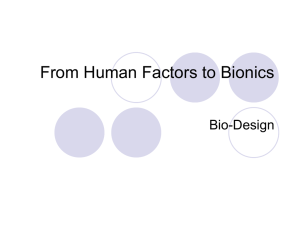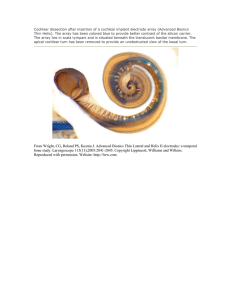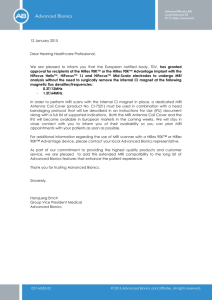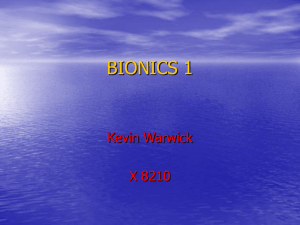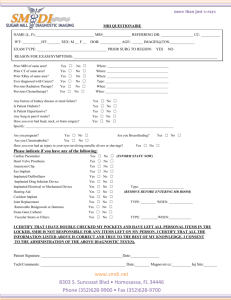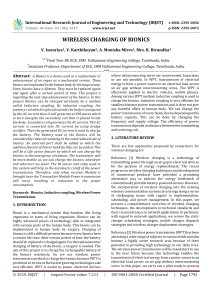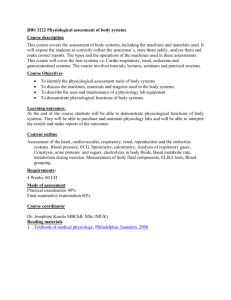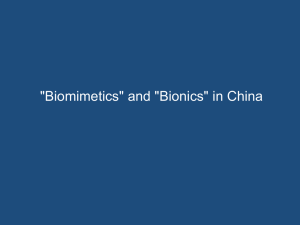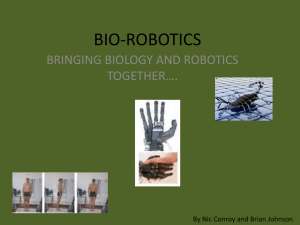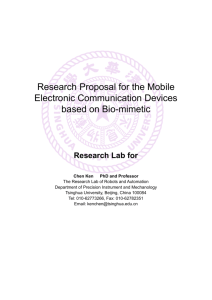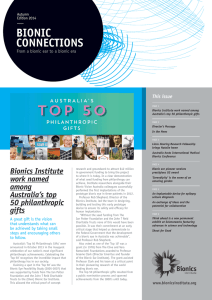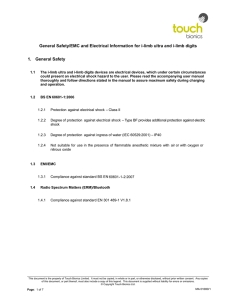Genova 19 Gennaio, 1997
advertisement
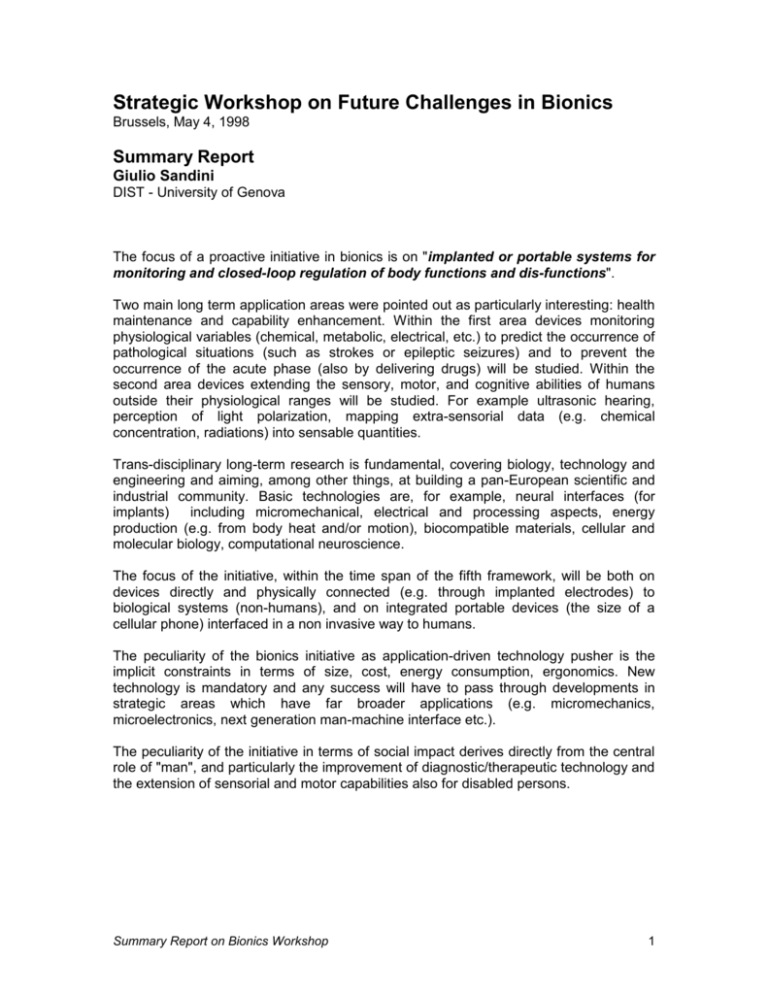
Strategic Workshop on Future Challenges in Bionics Brussels, May 4, 1998 Summary Report Giulio Sandini DIST - University of Genova The focus of a proactive initiative in bionics is on "implanted or portable systems for monitoring and closed-loop regulation of body functions and dis-functions". Two main long term application areas were pointed out as particularly interesting: health maintenance and capability enhancement. Within the first area devices monitoring physiological variables (chemical, metabolic, electrical, etc.) to predict the occurrence of pathological situations (such as strokes or epileptic seizures) and to prevent the occurrence of the acute phase (also by delivering drugs) will be studied. Within the second area devices extending the sensory, motor, and cognitive abilities of humans outside their physiological ranges will be studied. For example ultrasonic hearing, perception of light polarization, mapping extra-sensorial data (e.g. chemical concentration, radiations) into sensable quantities. Trans-disciplinary long-term research is fundamental, covering biology, technology and engineering and aiming, among other things, at building a pan-European scientific and industrial community. Basic technologies are, for example, neural interfaces (for implants) including micromechanical, electrical and processing aspects, energy production (e.g. from body heat and/or motion), biocompatible materials, cellular and molecular biology, computational neuroscience. The focus of the initiative, within the time span of the fifth framework, will be both on devices directly and physically connected (e.g. through implanted electrodes) to biological systems (non-humans), and on integrated portable devices (the size of a cellular phone) interfaced in a non invasive way to humans. The peculiarity of the bionics initiative as application-driven technology pusher is the implicit constraints in terms of size, cost, energy consumption, ergonomics. New technology is mandatory and any success will have to pass through developments in strategic areas which have far broader applications (e.g. micromechanics, microelectronics, next generation man-machine interface etc.). The peculiarity of the initiative in terms of social impact derives directly from the central role of "man", and particularly the improvement of diagnostic/therapeutic technology and the extension of sensorial and motor capabilities also for disabled persons. Summary Report on Bionics Workshop 1
